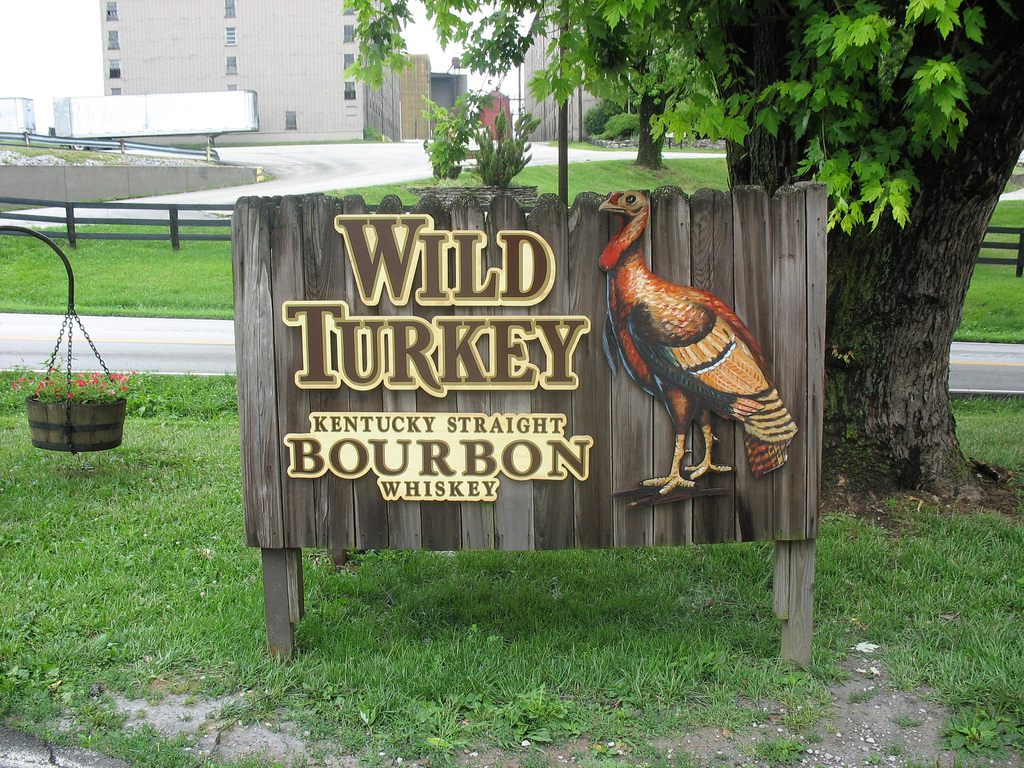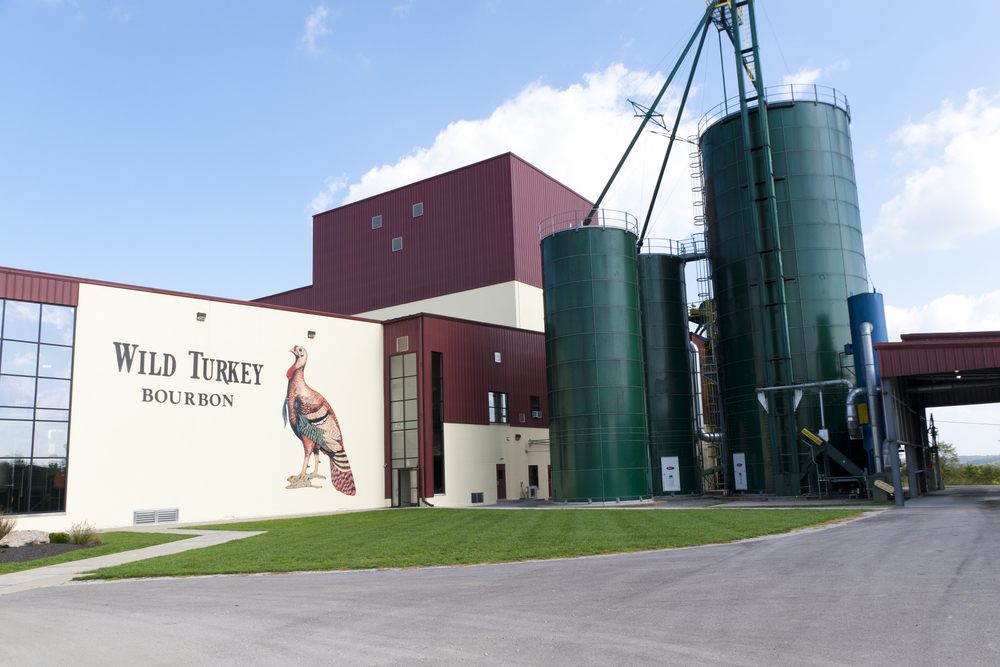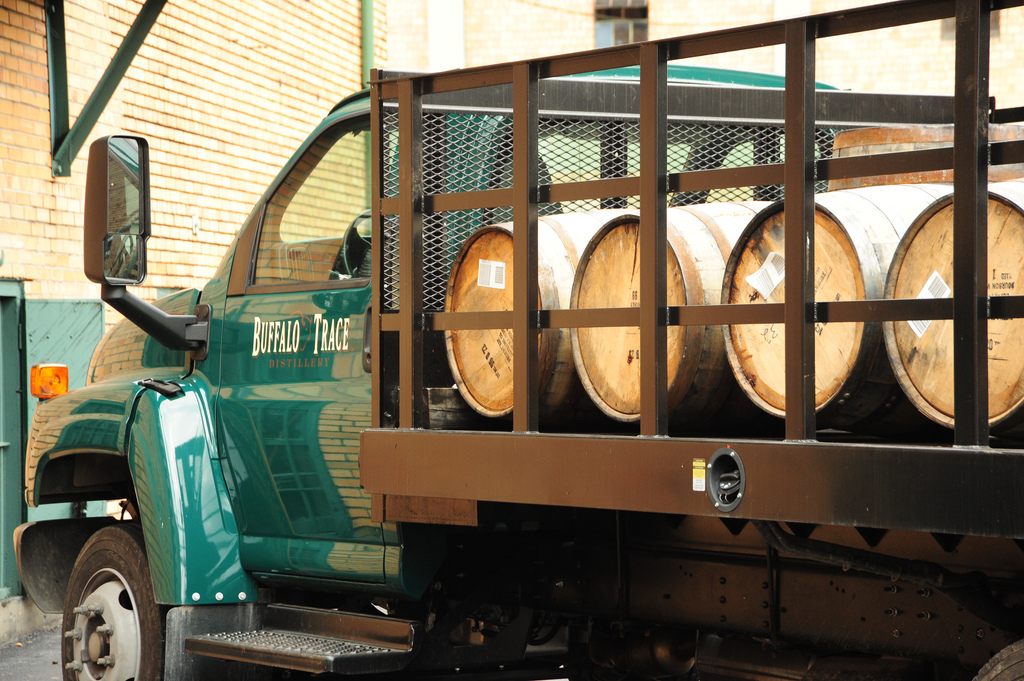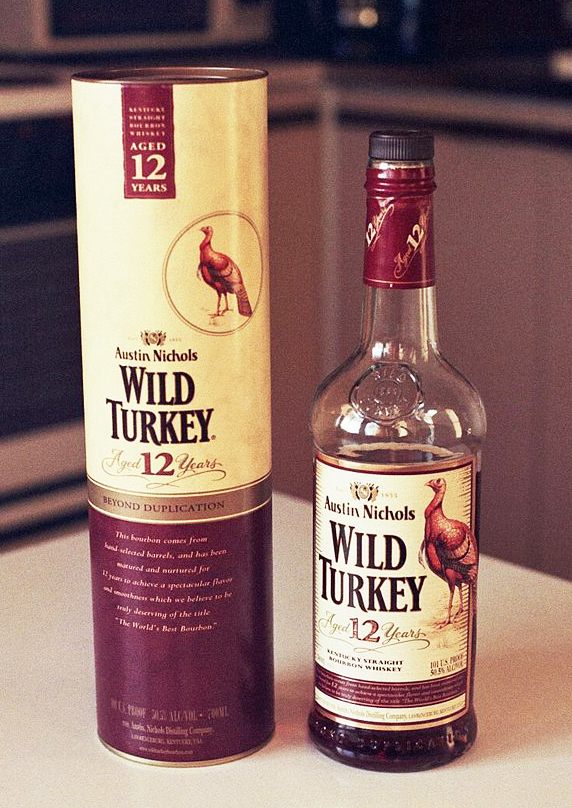How a Small-Town Crime Syndicate Stole Kentucky’s Bourbon

Welcome to Wild Turkey Bourbon! (Photo: Chris Breeze/flickr)
It started as early as 2006, when bottles of whiskey started disappearing from distilleries in Kentucky. These weren’t one-off petty thefts. A two-year investigation led officials to a ring of people stealing and reselling hundreds of thousands of dollars worth of whiskey.
The whiskey heist follows a common economic thread. A once-overlooked local commodity becomes sought after by aficionados, driving up its value. In turn, black markets begin seeking out the product. In this case, the expensive bourbon Pappy Van Winkle was being snatched by distillery employees. The thefts reinforced the rising value of the product, after stories hit the press that an already finite product was becoming scarcer.
The fact that such a large stock had been stolen and resold for nearly a decade before investigators caught up with it shows just how valuable bourbon has become. Similarly, last year, as maple syrup prices rose so too did a underground market of heisted syrup. People with access tried to profit on the newfound national obsession. Indeed, Kentucky bourbon seems to have transformed small-town southern residents into members of an alleged crime syndicate committed to theft and underground marketing.

The Wild Turkey Bourbon Distillery at Lawrenceburg, KY, where birds are turned to bourbon (just kidding). (Photo: Irina Mos/shutterstock.com)
But no one had a clue about all this theft until 2013, when officials in Kentucky’s Franklin County discovered more than $26,000 of Pappy Van Winkle bourbon had been stolen from the Buffalo Trace distillery, where the drink ages. At the time, the sheriff in charge of the investigation deemed it an “internal theft.” But as the discoveries piled up, it became something much larger than that, and spread across bourbon companies.
By April of 2015, investigators had located $100,000 worth of the stolen liquor and indicted nine people involved with the crime. According to Tom Fischer, who runs the whiskey aficionado website Bourbon Blog and has been covering the case since the beginning, many of the thieves worked at the distilleries in question. The dozens of barrels stolen include bourbons from Pappy Van Winkle, Buffalo Trace, and Wild Turkey. The band of thieves initially met at a softball league, explains Fischer. Most of the people indicted were former distillery employees who had access to all three stocks.
The alleged ringleader, named Gilbert “Toby” Curtsinger, worked at the Buffalo Trace distillery. He was known an “exceptionally brazen thief,” the Washington Post reports. And stolen whiskey wasn’t Curtsinger’s only penchant. When investigators searched his house they found an arsenal of guns and steroids. They also found texts on his phone that referenced the stolen whiskey. The investigators, it seemed, had found their man.

Barrels of bourbon outside the Buffalo Trace distillery in Kentucky. (Photo: Carl Wycoff/flickr)
Gradually it became clear that while Curtsinger was allegedly leading the bandwagon, many others were involved. One man, named Dustin “Dusty” Adkins tearfully told the Washington Post last May, “I’m just a small Kentucky boy.” He too now faces charges of being involved in the whiskey stealing ring, and pleaded guilty last August.
The ploy, it seems, was to indiscreetly smuggle out barrels of expensive whiskey and then sell it on the black market. Curtsinger allegedly rounded up a group of other distillery workers and middlemen to aid in the crimes. Over the last year, as authorities have interviewed and arrested more people involved with the crimes, new witnesses have continued to come forward. To date, nine people have been indicted and three have been given plea bargains in exchange for evidence. The investigation is still ongoing.
Fischer cannot recall a past whiskey-stealing incident of such a grand scale. Before it became a coveted beverage, it’s likely that an employee would pocket a bottle or two, but just for personal enjoyment. Bourbon theft, he says, is an indication of the fascination the U.S. has for the alcohol.

Looks like someone’s been drinking. (Photo: Public Domain/WikiCommons)
Now it’s something more than a cheap strong drink distilled down south. And for whiskey lovers, this highly publicized heist creates an interesting situation. Stolen Pappy Van Winkle—which is bottled in small quantities every year, with an ever-increasing price tag—puts the highly-rated and often hard to find whiskey front and center. The press surrounding the heist likely increased its value.
The fact that people are so enamored with just a few bourbon brands is why this prolonged heist took place. People like Curtsinger knew they could make a great deal of money hawking stolen goods on the black market. News that crime rings were created to launder the beverage likely reifies this value, driving home the impression that the whiskey is worth its high price.
“They are status symbols,” says Fischer, of the brand’s wares, “like Porsches.” And syndicates, like those indicted, make the Porsches even more expensive.







Follow us on Twitter to get the latest on the world's hidden wonders.
Like us on Facebook to get the latest on the world's hidden wonders.
Follow us on Twitter Like us on Facebook